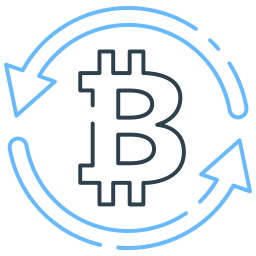Solana vs Cardano: Battle for Blockchain Supremacy
The blockchain landscape has been dominated by two prominent players in recent years: Solana and Cardano. Both of these platforms have garnered significant attention from investors, developers, and users alike due to their promising technological advancements and potential for widespread adoption. In this article, we’ll delve into the key differences between Solana and Cardano, exploring their strengths and weaknesses, as well as their respective use cases and potential applications.
Before we dive into the details, it’s essential to understand that both Solana and Cardano are Proof of Stake (PoS) blockchain platforms. This means they operate on a consensus mechanism where validators are rewarded with new blocks rather than mining cryptocurrencies like Bitcoin or Ethereum. Both platforms also have their own unique features and technologies that set them apart from one another.
One key area of differentiation is the technology behind each platform. Solana utilizes a novel consensus algorithm called the Proof of History (PoH), which allows for faster transaction processing times while maintaining the security of the network. In contrast, Cardano employs the Ouroboros consensus algorithm, which also ensures the integrity of transactions but operates at a slower pace than PoH.
Another significant difference lies in their respective use cases and applications. Solana has gained significant traction in the gaming industry due to its fast transaction processing times and low latency. The platform’s developers have created several games that take advantage of its capabilities, including DeFi protocols like Serum and Orca.
Cardano, on the other hand, has focused more on the realm of decentralized finance (DeFi) applications. The platform’s developers have been working tirelessly to create a robust ecosystem of DeFi protocols and wallets that cater to the needs of users worldwide.
In terms of scalability, Solana has managed to maintain an edge over its competitors due to its Proof of History consensus algorithm. This allows for faster transaction processing times while maintaining the security of the network, making it an attractive option for high-frequency trading applications.
Cardano, however, has been working on improving its scalability through recent updates and advancements in its technology. The platform’s developers have implemented a new consensus algorithm called Alonzo, which promises to increase the platform’s transaction processing capacity while maintaining security.
Another area of differentiation is the smart contract capabilities of each platform. Solana utilizes the C SDK (Solana C Library) for developing smart contracts, whereas Cardano employs the Dlang programming language for this purpose.
The development teams behind both platforms have also been working on improving their respective ecosystems through regular updates and bug fixes. Solana’s developers have implemented a new feature called “clamshell wallets,” which promises to improve user security and convenience.
Cardano’s developers, on the other hand, have been focusing on creating a more decentralized and transparent governance model for the platform. The Cardano treasury is managed through a community-driven voting system, allowing holders of ADA (the native cryptocurrency) to participate in decision-making processes.
In conclusion, both Solana and Cardano are powerful blockchain platforms with unique features and technologies that set them apart from one another. While Solana excels in the realm of gaming and DeFi applications due to its fast transaction processing times, Cardano has carved out a niche for itself in the world of decentralized finance.
Ultimately, the choice between Solana and Cardano depends on your specific needs and use cases. Both platforms have the potential to revolutionize the blockchain industry and provide unparalleled scalability and security for users worldwide.
Tags: solana, cardano, blockchain, proof-of-stake, decentralization, cryptocurrency, smart contracts



